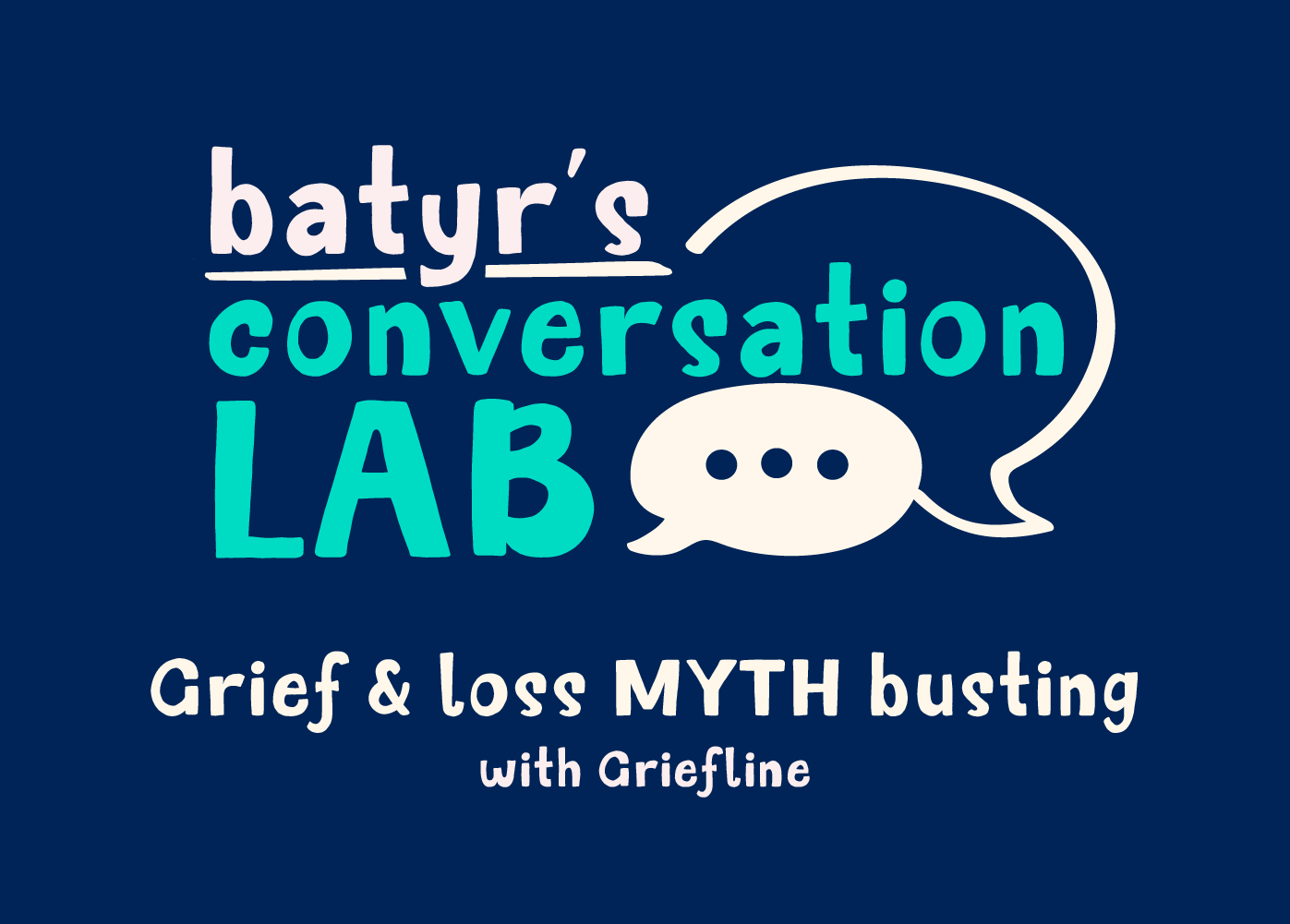To kick off the launch of batyr’s Conversation Lab, we’re exploring the topic of grief and loss with our friends at Griefline.
Grief is a natural human reaction to the experience of profound loss. It can be powerful, unpredictable and sometimes uncontrollable. It’s something being felt by many people around the world amid this pandemic, even if they haven’t been directly impacted by the death of a loved one.
Here are three myths and misunderstandings to bust about grief that will hopefully show why your emotions are valid.

Myth 1: Grief is only a response to death
The type of loss most commonly associated with grief is bereavement, whether it’s the loss of a family member, friend or a pet. However, there are many other types of grief related to living losses including:
- breakdown of a relationship (including estrangement from family)
- addiction or chronic health issues
- major life changes
- natural disasters and the loss of homes and communities
- miscarriage
- losing your identity
For many of us, we’ve experienced the loss of a physical connection, the loss of routine, freedom, trust in others and plans and hopes for the future. Each one of these losses and many others can spark the grief process. All losses are valid and none are more or less worthy of grief.
Myth 2: The grief process is linear
You’ve probably heard the five stages of acceptance before: denial, anger, bargaining, depression and acceptance.
Otherwise known as The Kubler-Ross model, it was developed back in 1969 and was originally intended for people who were dying – not grieving. It became a very popular theory and it’s still the model that most people think of when they think of grief today.
These are all integral states of being for many people who are grieving but not everyone experiences each of those states and it’s not standard that people will experience them in chronological order.
It’s important to remember that there is no right or wrong way to grieve. Everyone’s process is unique and they shouldn’t be judged for not grieving the way people expect them to.
Myth 3: Grief sticks to a schedule
The emotions around grief can come and go over weeks, months, and years to come. There’s no set time limit for how long grief can last.
For most people, grief eventually becomes less overwhelming as you build a new life out of the loss. Thankfully, there is support available to help you cope and live with grief.
Griefline provides free and confidential counselling and support to people experiencing grief and loss across Australia. Call 1300 845 745 (6am – midnight AEST) to start a conversation today.
If you’re in need of more immediate mental health support, please call Lifeline on 13 11 14 or Kids Helpline on 1800 55 1800.